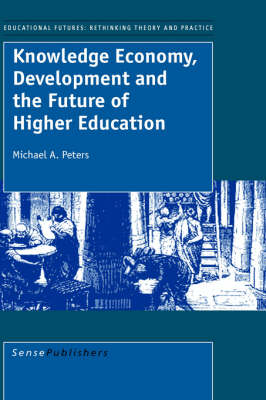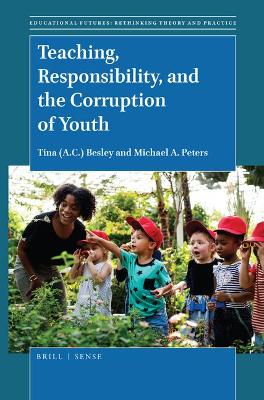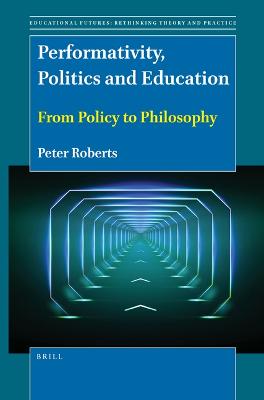Educational Futures
5 primary works
Book 10
Knowledge Economy, Development and the Future of Higher Education
by Michael A. Peters
Published 1 January 2007
Book 26
Neoliberalism, Higher Education and Research
by Peter Roberts and Michael A. Peters
Published 1 January 2008
Book 51
Book 71
Teaching, Responsibility, and the Corruption of Youth
by Tina Besley and Michael A. Peters
Published 19 February 2019
Teaching, Responsibility, and the Corruption of Youth explores the concept and practice of responsibility in education and teaching in the new post-Cold War era after the long run of globalization and liberal internationalism has been disrupted by the rise of populism, anti-immigration sentiments and new forms of terrorism. The old liberal values and forms of tolerance have been questioned. Responsibility is a complex concept in our lives with moral, social, financial and political aspects. It embraces both legal and moral forms, and refers to the state of being accountable or answerable for one's actions implying a sense of obligation associated with being in a position of authority such as a parent, teacher or guardian having authority over children. First used with schools in 1855, the concept's legal meaning was only tested in the 1960s when student conduct, especially when materially affecting the rights of other students, was not considered immune by constitutional guarantees of freedom.
This volume investigates the questions left with us today: What does responsibility mean in the present era? Does loco parentis still hold? What of the rights of students? In what does teacher responsibility consist? Can student autonomy be reconciled with market accountability? To what extent can responsibility of or for students be linked to 'care of the self' and 'care for others'? And, most importantly, to what extent, if any, can teachers be held accountable for the actions of their students?
This volume investigates the questions left with us today: What does responsibility mean in the present era? Does loco parentis still hold? What of the rights of students? In what does teacher responsibility consist? Can student autonomy be reconciled with market accountability? To what extent can responsibility of or for students be linked to 'care of the self' and 'care for others'? And, most importantly, to what extent, if any, can teachers be held accountable for the actions of their students?
Book 76
This book provides a distinctive perspective on some of the ways in which performativity, as an expression of neoliberal and managerialist thinking, ‘works’ in specific policy contexts. It pays particular attention to higher education and considers how the logic of performativity reconfigures our sense of what it means to engage in worthwhile research, what it means to be ‘well’, and, ultimately, what it means to be human.
Philosophy of education, conceived not just as a domain of scholarly activity but as a way of life, rubs against the grain of performativity. In a performance-driven world, efficiency, measurability and predictability are all important. A philosophical life in education is often unpredictable, uncertain and ‘inefficient’; it creates a kind of intellectual restlessness that can never be fully satisfied.
Performativity, Politics and Education: From Policy to Philosophy suggests that the current obsession with productivity, performance and prosperity is misguided. It argues that policies and practices underpinned by the principle of performativity are dehumanising and offers an alternative approach: an orientation to education grounded in a philosophy of hope and underpinned by a commitment to collegiality, constructive critique and ongoing dialogue.
Philosophy of education, conceived not just as a domain of scholarly activity but as a way of life, rubs against the grain of performativity. In a performance-driven world, efficiency, measurability and predictability are all important. A philosophical life in education is often unpredictable, uncertain and ‘inefficient’; it creates a kind of intellectual restlessness that can never be fully satisfied.
Performativity, Politics and Education: From Policy to Philosophy suggests that the current obsession with productivity, performance and prosperity is misguided. It argues that policies and practices underpinned by the principle of performativity are dehumanising and offers an alternative approach: an orientation to education grounded in a philosophy of hope and underpinned by a commitment to collegiality, constructive critique and ongoing dialogue.




